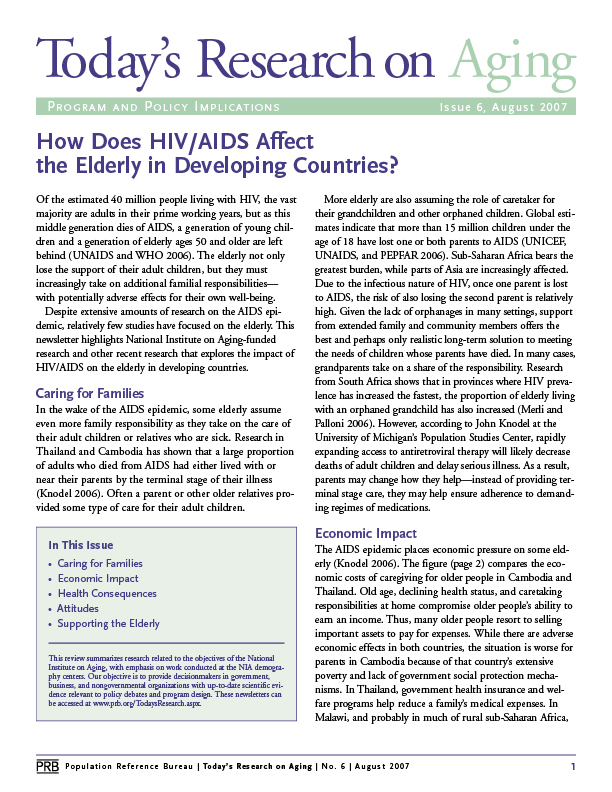
HIV/AIDS and Older Persons in Developing Countries
Date
October 29, 2009
Author
Focus Areas
(November 2009) Despite the extensive research done on the HIV/AIDS epidemic, there have been relatively few studies on the impact of HIV/AIDS on older persons in developing countries. While some older persons are at risk or infected, a much larger number are affected through the illness or death of their adult sons and daughters and other family members. Increasing availability and access to antiretroviral therapy is influencing both the consequences for and contributions of older persons. In places where access is widespread, the burden of personal caregiving for older persons to HIV-infected adult sons and daughters is substantially reduced while the potential for older aged parents to provide important treatment support to their adult children is greatly enhanced.
John Knodel has studied the involvement of older people in the HIV/AIDS epidemic, specifically in Southeast Asia. He is Research Professor Emeritus at the Population Studies Center and Professor Emeritus, Sociology at the University of Michigan. His research focuses not only on the consequences of HIV/AIDS on older persons, but also their contributions to helping their family members and communities cope with the disease. In this interview, Knodel discusses the importance of looking at HIV/AIDS effects on older persons, research findings from Cambodia and Thailand, and the research still needed to understand how HIV/AIDS involves the elderly and what policy responses are needed, particularly in light of increased access to antiretrovirals.
Eric Zuehlke is an editor at the Population Reference Bureau.

 ">
">